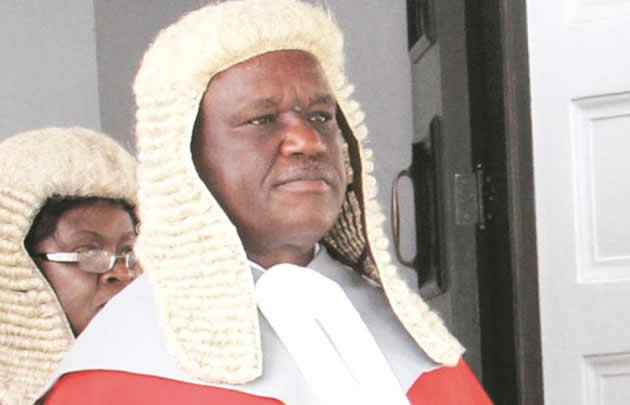Editorial Comment: Ban on child marriages long overdue

ZIMBABWE is making great strides in the protection of children and their rights and a landmark Constitutional court judgment outlawing marriages for children under the age of 18 is a major development that will safeguard minors from abuse. In a landmark 56-page judgment handed down on Wednesday, Deputy Chief Justice (DCJ) Luke Malaba struck down Section 22(1) of the Marriages Act (Chapter 5:11) which allows children of 16 years to marry saying it was unconstitutional.
The nine-member bench led by DCJ Malaba declared that Section 78(1) of the Constitution sets 18 years as the minimum age of marriage, and that any law to the contrary was unconstitutional. “It is declared that Section 78(1) of the Constitution of the Republic of Zimbabwe Amendment Number 20 of 2013 sets 18 years as the minimum age of marriage in Zimbabwe,” ruled DCJ Malaba.
“It is further declared that Section 22(1) of the Marriages Act (Chapter 5:11) or any law, practice or custom authorising a person under 18 years of age to marry or to be married is inconsistent with the provisions of Section 78(1) of the Constitution and therefore invalid to the extent of the inconsistency.
“The law is hereby struck down. With effect from January 20, 2016, no person, male or female may enter into any marriage, including an unregistered customary law union or any other union including one arising out of religious rite before attaining the age of 18 years.” The other eight judges of the Constitutional Court who heard the matter concurred with the judgment, making it a unanimous decision of the court.
We welcome the judgment and call on the government to complement the actions of the judiciary by speedily moving to align the laws with the Constitution so that breaches are criminalised and offenders punished. Parliament should quickly enact laws that actualise the judgment or amend existing ones to ensure that the act of marrying or impregnating children below the age of 18 is an offence.
As it stands, it is not yet an offence to marry a child under 18. Constitutional lawyer Tendai Biti, who successfully argued the child marriage case in court, said: “Parliament must come up with laws that actualise the judgment. The judges did what they are supposed to do to protect the Bill of Rights.
They did it brilliantly. “Now that the age of 18 has been declared as the minimum age of marriage, there is now need to urgently harmonise the laws with the constitution and the court judgment”. The sexual reproductive health and human rights of minors has been a thorny subject in Zimbabwe and women’s groups and other organisations have fought a long and protracted struggle to protect children — particularly the girl child.
Yesterday, they welcomed the judgment and we join them in celebrating a milestone victory that will not only ensure the safety of children but will go a long way in reducing sexual crimes against minors. Parliament is currently seized with raising the age of consent from 12 to 16 with lawmakers having agreed to amend the Criminal Procedure and Evidence Act to make it an offence to having a sexual relationship with a minor.
The Constitution set the age of consent at 16 but the criminal law code states that girls as young as 12 are capable of giving consent. The Constitutional court judgment is important in that it effectively strikes down Section 22(1) of the Marriage Act (Chapter 5:11) which provided that a girl who had attained the age of 16 was capable of contracting a valid marriage.
The 16-year-old girl, according to the Act, had to obtain the consent in writing to the solemnisation of the marriage from her legal guardians. A boy, according to the struck down law, would marry at the age of 18, thereby showing discrimination between girls and boys.
The judgment therefore has not only protected the rights of the girl child but has effectively placed both sexes on an equal footing. We hail the Constitutional court for standing up for the little people because there has been intense criticism of the National Prosecuting Authority for seemingly taking a soft stance on paedophiles and child sex predators.
Debate over the age of consent might be reignited because even if the Constitution provides that it is 16, it might become invalid as the same constitution states that everybody below 18 is a child. What is also crucial is that the judgment has barred churches and other religious sects that allow child marriages to continue doing so as marriage was a right only enjoyed by adults.
We hope they have been put on notice and that the law will be applied with no fear or favour. The Constitutional court has ensured that the girl child is protected from the social evil of sexual exploitation, physical abuse and deprivation of education.










Comments